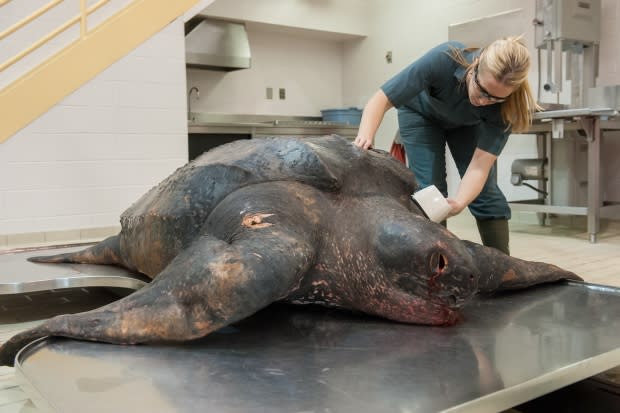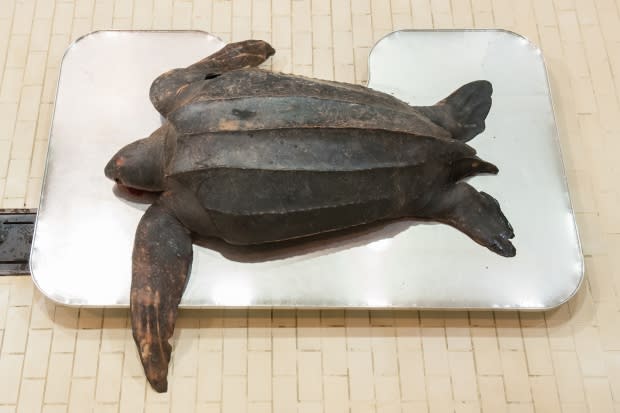Sea turtle didn't die of trauma or entanglement, preliminary necropsy suggests
The cause of death of a large leatherback sea turtle that washed up P.E.I.'s Argyle Shore last week has not yet been determined, but wildlife officials say there is no evidence of trauma or that it was entangled in fishing gear.
A necropsy on the turtle is being performed at the Atlantic Veterinary College in Charlottetown.
"She was in very good body condition," said Megan Jones, director of the Canadian Wildlife Health Cooperative for the Atlantic region.
"She had lots of body fat, which is fantastic. So that's good, it means she was not chronically sick with anything most likely."
Preliminary findings also show the female turtle did not die from eating plastic, Jones said, which the reptiles sometimes mistake for jellyfish.
Testing will continue to determine if the sea turtle had a bacterial infection or disease, she said.

Jones, a veterinary pathologist, said she will also collaborate with ecologists and biologists to see if environmental factors, such as the turbulent storm last month, could have contributed to its death.
She said it's unusual for sea turtles, which have been on Canada's endangered list since 2003, to be in P.E.I. waters this late in the season, especially in the Northumberland Strait.
Turtle was well-preserved
Jones said the turtle was unusually well-preserved and "fresh" when it arrived at the AVC.
"A lot of times these guys die and then they wash up on shore a long time later," she said. "This one was a really unique opportunity to learn a lot about the species."

The turtle's shell was measured at about 1.5 metres long, and it's total body length about two metres. It weighed 462 kilograms, or 1,018 pounds. Wildlife officials estimate the turtle to be about 20 years old.
Jones said testing could take until late December or early January to determine the cause of death, and there's possibility the results will be inconclusive.
More P.E.I. news

